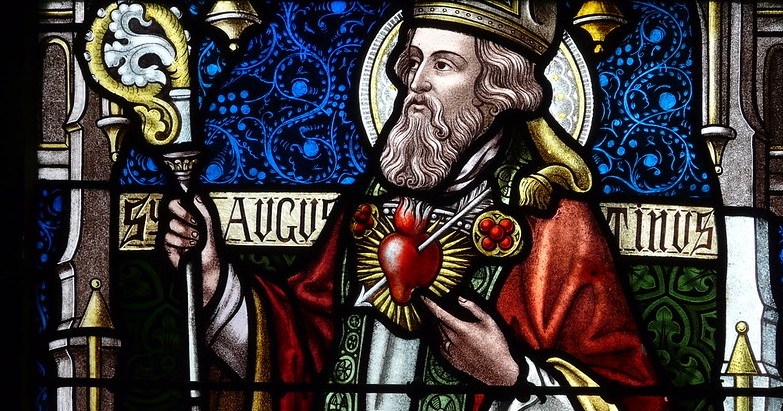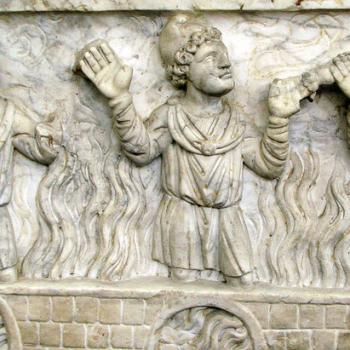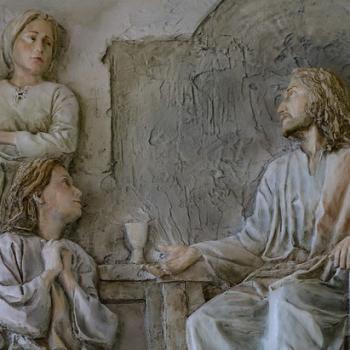
Threats to the Gospel
As a student of the Patristics, I know the theological debates and controversies surrounding the Trinity and the person of Christ. Theological novelties surrounding these core Christian doctrines abounded as many new Christians sought to infuse their gnostic influences – sometimes forcibly – into the Gospel. The injection of such foreign ideas threatened Gospel fidelity and required thoughtful confrontation. I wouldn’t say I like the thought of having to confront people. However, conflict is sometimes necessary when dealing with old traditional patterns of looking at the Bible devoid of cultural lenses. Contention arises at the intersection of need and passion. In the contemporary church, the need for Christian thinkers has never been greater.
Older movies often portray a dire emergency when someone in the scene yells, “Is there a Doctor in the House?” You knew the danger was imminent and required a fast response. Likewise, when I hear sermons devoid of sound exegesis or passages badly misinterpreted, I want to yell, “Is there a Doctor in the Church!” We need good Bible scholars, or people was suffer from Bible malnutrition.
In the four gospels, we see Jesus interacting daily with the societal outcast in compassion and mercy. Conversely, religious leaders, lawyers and powerful men were rejected by Christ because of their treatment of the social outcasts and their use of the Scripture for their ends. Their approach held a strict monopoly on interpretation. Matthew’s Gospel highlights this tension when Jesus declares, “you blind guides! You strain out a gnat but swallow a camel (Matt 23:24, NIV)!”
Reductionist Errors
Growing up in the culture of the Southern Baptist tradition, I became attracted to the so-called simple verse-by-verse approach to interpreting Scripture. I began attending churches, attracted to this seemingly purist return to the “plain meaning of the text.” The verse-by-verse teaching provided a simple yet relatable way to understand the Bible and thus grow spiritually with God without the complexity of “man’s ideas” muddying the waters. Over time, this narrow perspective of understanding the Bible proved woefully insufficient in dealing with the cultural problems of the wider world. Well-meaning preachers told me the dilemma of a fallen world lies solely with sinful humanity’s rebelliousness. Total depravity, as I understood it, meant we could do nothing, nothing good in this world with the minor footnote, apart from Jesus.
Somewhere along the way, we disregarded the beautiful creation narrative of Genesis 1 and 2. God created humanity in His excellent image! Was the image eventually marred or hopelessly destroyed? My curiosity led me to seminary – cemetery, as I’ve often heard – to encounter a vast world of Christian thought outside of the history of my tradition borne out of the world of D. L. Moody and an overreaction to the liberal culture of the day. After the Scopes Trials of the mid-1920s, many evangelicals retreated to their fortresses of solitude, defended their doctrines of premillennial dispensationalism, and disengaged from the world.
Unfortunately, as we waited for the rapture to suddenly and without warning take us up into the clouds, we neglected to engage with the world. Many evangelical churches had jettisoned preaching that engaged history and the church’s rich traditions and contributions by great thinkers such as Augustine and Aquinas. Why waste time learning about church history and sound exegesis when Jesus could return at any moment?
Typically, when preaching goes directly from reading the text – observation to an application without skipping a beat, we fail to connect the dots. The church needs to engage with current topics with thoughtfulness and tell stories with nuance; otherwise, we become guilty of preaching an overly simplistic message that caters to our plan. Even worse, we import pagan ideas from patriarchy and racism into the text. Some of the most divisive issues include but are not limited to racism, gender equality in pastoral leadership, mental illness, and abortion. CRT is the new boogie man that many churches are unwilling to touch, unnecessarily conflating Marxism with Christian theology to avoid crucial conversations about the church’s treatment of the disenfranchised.
A Better Way to Teach the Bible
Over the past ten years, I’ve completed two master’s degrees in Christian Thought and Biblical Studies while working full-time at a major tech company. Over the next few years, I hope to continue my journey by pursuing a doctorate related to the intersection of the church and the culture at large to train future church leaders to become better, well-rounded thinkers and more engaged with the world around them. This journey means confronting those who want to read the Scripture on a surface level and leave the door wide open for extra-biblical ideas to creep in. I am passionate about the church and desire God’s work to continue bringing people to a full and rich understanding of Christ and participation in the work he has called us in the world.
Teaching the Bible involves understanding how the original languages of the Old and New Testament convey meaning in today’s language. It also involves learning the cultures and world of the Biblical writers and their audiences. We also need to know the literary forms of each book and phrases, nuances, and patterns that convey meaning our modern Bibles don’t. Studying to teach involves lots of work, and those who do it professionally need the proper education.
Surgeons who operate on their patients with very little or no training endanger the lives of their patients. There was a time when questionable practices in the medical field were rampant. For example, practices such as bloodletting were thought to cure many diseases because you were removing the impure blood. At that time, the scientific community was unaware of the cause and proper cure of many diseases because the technology was not in place to change the current medical practices. Today, we can save more lives by developing medicines targeting specific illnesses. However, intense study and practice of suitable methods and procedures are a requirement.
Doctor Please!
If the medical field requires such intense training for the care of the physical and mental well-being of the patient, how much more does the church need well-qualified and trained pastoral ministers and teachers of the Bible? Those of us who teach the Bible bear some responsibility for the care and spiritual well-being of others.
The church needs doctors who will preach the Bible from its historical, cultural, and linguistic contexts to equip the church to live out the call of God to be salt and light for the Gospel. Not every pastor or Bible teacher can earn a Ph.D. The Great Awakenings witnessed a surge in new converts and the need for large numbers of clergy. The need for Christian thinkers began to wane as the focus on teaching a simplified version of the Gospel to get more people converted took center stage before the rapture. However, we need to develop deep thinkers and scholars who provide better pastoral care to the church.
May we all dig deeper and appreciate the rich history and culture of the church and the great Christian thinkers of the past and present so that we may have eyes to see and ears to hear the heart cries of those looking for more than just simple answers. But, more importantly, may the message of the good news transform our hearts so that we may shine as image bearers of God through Christ in the world.












